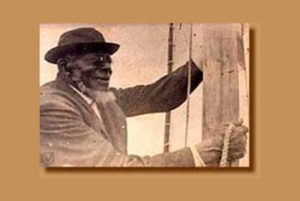
Jupiter Hammon
Jupiter Hammon, a Black poet, was born on this date in 1711.
Hammon served several generations of the Lloyd family on Long Island, New York, as a slave. He was a slave his entire life, but he was allowed to attend school, and his formal education influenced his development as a poet. Like his masters, Hammon was a Christian influenced by the religious revivals in 18th-century New England.
His writing reflects his deep spirituality, and his first published poem, "An Evening Thought. Salvation by Christ with Penitential Cries," was written on Christmas Day, 1760, and published as a broadside in early 1761, making it the first piece of literature published in the United States by a person of African descent. His second extant piece of poetry, published 17 years after the first, honors Phyllis Wheatley. Hammon never mentions himself in the poem, but when choosing Wheatley as a subject, he acknowledges their common bond.
He also wrote an Address to the Negroes of the State of New York before their African Society on September 24, 1786. In this speech, Jupiter Hammon expressed his opinions on slavery most clearly. Although, as an individual, he claimed he did "not wish to be free," he did add that he believed slavery was unjust and would be "glad if others, especially the young Negroes, were free.” Hammon remained a slave until his death. His poetry is often anthologized to recognize his role as a founder of the Black literary tradition in America.
One of America's first published Black writers, Jupiter Hammond, died in 1806.